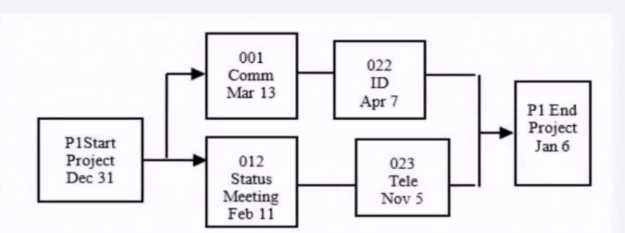asq cmq-oe practice test
Certified Manager of Quality/Organizational Excellence
Question 1
One of the first steps in optimizing the supply chain is to
- A. develop a flowchart
- B. conduct a cause and effect analysis
- C. apply the Dealing wheel
- D. create a fault tree analysis
Answer:
A
Question 2
In the Kano model, which of the following best defines an exciter attribute?
- A. These attributes can be rated as "important" but they are expected.
- B. These are articulated needs, what customers will say they need.
- C. These are unexpected but if offered, uener.ne "delight" and surprise the customer
- D. Satisfaction increases linearly as these attributes arc more fully delivered
Answer:
C
Question 3
A senior executive invites employees to become members of a team that will help make decisions
about which actions to lake before implementing the action selected by the executive. What kind of
leadership style is executive using?
- A. Nondirective
- B. Consultative
- C. Results-based
- D. Open-door
Answer:
B
Question 4
When a quality manager develops a long-term strategy for quality within an organization, winch of
the following is the first step?
- A. Establishing benchmarks
- B. Developing the quality mission statement
- C. Interviewing line personnel
- D. Assigning staff to assist in the effort
Answer:
B
Question 5
An organization that liar, similar norms and values across product, unit, or functional boundaries is
best described as having which of the following types of culture?
- A. Strategic
- B. Strong
- C. Adaptive
- D. Integrated
Answer:
D
Question 6
Ethics in the workplace can include
- A. indifference isolation and dishonesty
- B. honesty, loyalty and fairness
- C. respect, disparity and tolerance
- D. trust, integrity and self interest
Answer:
B
Question 7
Which of the following approaches indicates that a company has aligned its human resources with its
strategic goals?
- A. Paying employees appropriately for the work they do
- B. Involving employees through the use of suggestion boxes and awards
- C. Providing on-the-job training and individualized job performance feedback
- D. Developing business objectives that include measures of customer and employee satisfaction
Answer:
D
Question 8
Which of the following tools provides top management with a macro-level review of the
effectiveness of the quality system?
- A. Industry trend data for ISO Certifications
- B. Baldrige application self-analysis worksheet
- C. plans for quality records
- D. Procedures for processing nonconformances
Answer:
B
Question 9
The following chart was developed by a team.
This is an example of what type of chart?
- A. PERT
- B. Gantt
- C. Pareto
- D. Shewhart
Answer:
A
Question 10
An adult training program is most effective when it
- A. is presented at the workplace rather than off-site
- B. is designed and conducted by area managers
- C. uses a combination of lecture and self-test methods
- D. takes into account the trainees' learning styles
Answer:
D
Question 11
One of the primary purposes of a training needs analysis is to
- A. identify the employees' education levels
- B. validate management's strategic training vision
- C. determine where training will be most effective
- D. complete a cost-benefit analysis of the training plan
Answer:
C
Question 12
Which of the following steps should an organization take immediately after creating its strategic
plan?
- A. Translating the plan into actions
- B. Leveraging customer needs into profit opportunities
- C. Defining its mission and vision
- D. Deploying its quality' goals
Answer:
A
Question 13
ACME organization has several teams "feuding" with one another. This is causing quality issues with
customers, due to the variability in services and a lack of understanding not valuing what the other
learns are doing within the broader enterprise. An instructor has been identified to host team
budding exercises to help remediate die antagonism and get the employees focused on cooperative
value-laden improvement efforts. Which of the following training approaches would be most
effective?
- A. Process improvement training
- B. technical skills training
- C. Performance evaluation training
- D. Cross-functional training
Answer:
A
Question 14
Which of the following factors is most likely to affect a project's cost?
- A. Increased scope of work
- B. Unreliable tune estimates
- C. Supply delays
- D. Change of due dates
Answer:
A
Question 15
Performance appraisals and coaching techniques are most effective when they are combined to
- A. lead employees to higher levels of performance
- B. rank the workforce for pay increases or promotions
- C. Evaluate the performance of individual duals on a team
- D. discipline at-risk employees
Answer:
A